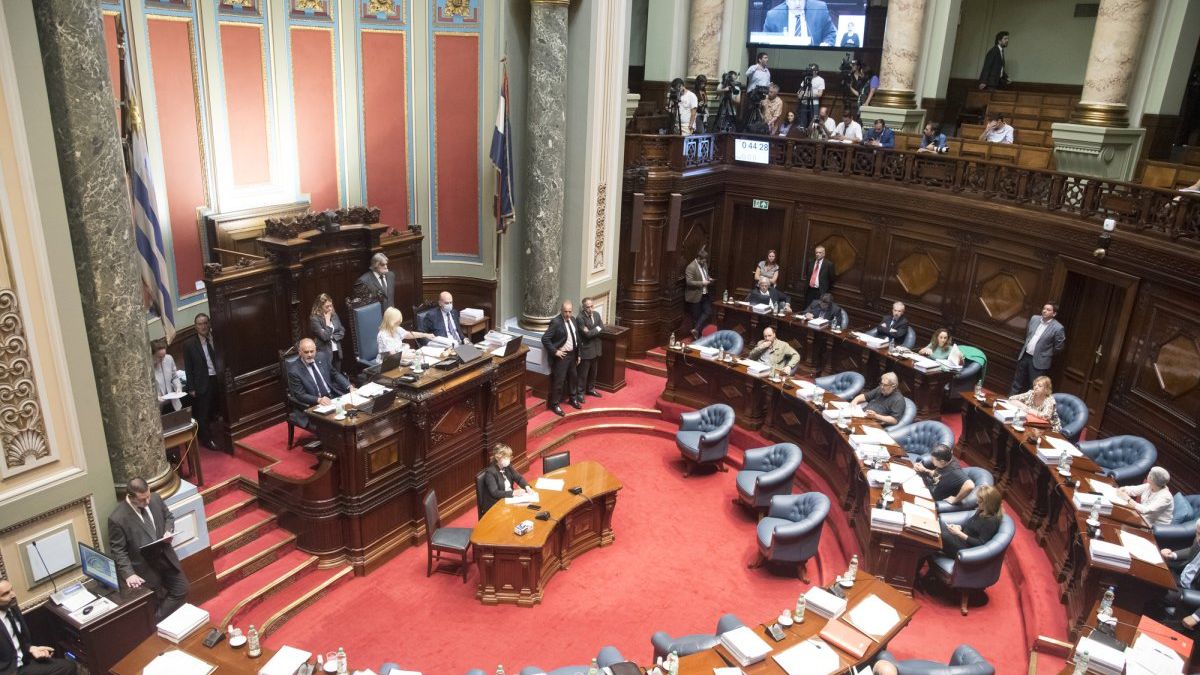The government risks a move that can go wrong in the Parliament, with the vote of shared tenancy project, for which it does not have its own majority. The initiative is one of the “bargaining coins” that the coalition wants to offer to Open Town Hall (CA) to obtain approval of the social security reform in Uruguay.
The objective of the ruling party is to vote on the project next Tuesday the 11th, just after the Tourism Week and while most eyes are on what happens in the Special Commission that deals with the reform of the pension system. However, the votes to pass the parenting co-responsibility law or shared tenure are not, at least so far.
In this case, the detractors are in the ranks of the Colorado Party, in the field of citizens, who announced their refusal to approve the project under the current conditions, and seek new modifications to the text that was approved in commission as it came down from the Senate.
The project requires a simple majority of the Low camera to be approved, that is, 50 votes if the 99 deputies are in the room. The coalition has 56 votes, but the majority will not work automatically since there are several who oppose approving it if changes are not made.
There are five pro-government deputies who have already resolved that they will vote against: the Colorados Felipe Schipani, Maria Eugenia Roselló and Nibia Reich (all from Citizens), Ivan Posada of the Independent Party (PI) and Cesar Vega of the Intransigent Radical Ecologist Party (PERI).
In turn, there are two other members of Ciudadanos, Juan Moreno and Jorge Alvear, that they have not yet defined the vote, although the former is inclined not to vote. Another colorado but of Batllistas, Omar Estevez, He asked for “more information” to see if he approves articles 4 and 6, those that are at the center of the controversy.
What do articles 4 and 6 say? Keys to understanding the project (and its rejection)
Shared tenure —which already exists in Uruguay— began to be debated in parliament after two bills were introduced, one of the National Party and another of the lobbyists, after the failed attempt in 2016, when the initiative was put on the table by the then senator Luis Lacalle Pou.
At that time, the lack of protection and violation of the rights of children who could be exposed to potential aggressors, the prioritization of the rights and interests of adults over those of children, and the possibility of further extending “judicial delays” in Conflicts over custody were some of the criticisms received by both proposals, which sought “equity” in disputes over custody of children in cases of divorce without agreement.
During that year, the nationalist senator Carmen Asiaín He was in charge of negotiating an “amalgamation” project that incorporated suggestions from social organizations and public bodies, also from CA, and specific elements of those claimed by Citizens, who delivered a document so that their contributions were taken into account.
This new project, with more modifications by the Colorados, entered the House in July of last year and was approved in the Senate at the beginning of August. However, it remained “boxed” until these last days, when the priority character that the Cabildo Abierto gave to this project suddenly “infected” its coalition partners, who see it as an element of negotiation for votes of the social security reform.
But the votes are not there, but the polemics. Above all, regarding the articles 4 and 6. The first regulates questions about the tenure regime, and indicates that, in the event that there are precautionary measures towards a parent denounced by the other, it will be the judge who must determine the visits and “will only suspend them in the event that the best interests of the child or adolescent are at risk” . It also implies that, in the event of the application of precautionary measures, “the right to visits of the accused must be respected, whenever in the judge’s opinion they are in accordance with the interest of the child.”
For its part, Article 6 is the one that establishes the procedure by which the visiting schedule. There it is established that “only for particularly serious reasons and on which there are well-founded indications” a shared system may be denied.
For Unicef, the National Institution of Human Rights (Inddhh) and the Broad Front (FA)among other social organizations and those linked to children’s rights, this project “is designed to protect adults denounced for violence” and “harms children” while there is no real commitment to prevent, attend to, protect and punish abuse, sexual abuse and violation of rights to which many children are subjected in the country.
For the opposition, moreover, it is unacceptable that an initiative of these characteristics is a “loot for change” within the government coalition; and the president of the FA, Fernando Pereira, has already warned that if he regains power in e2024 —and if the law had been approved—, it will be repealed.
Source: Ambito




